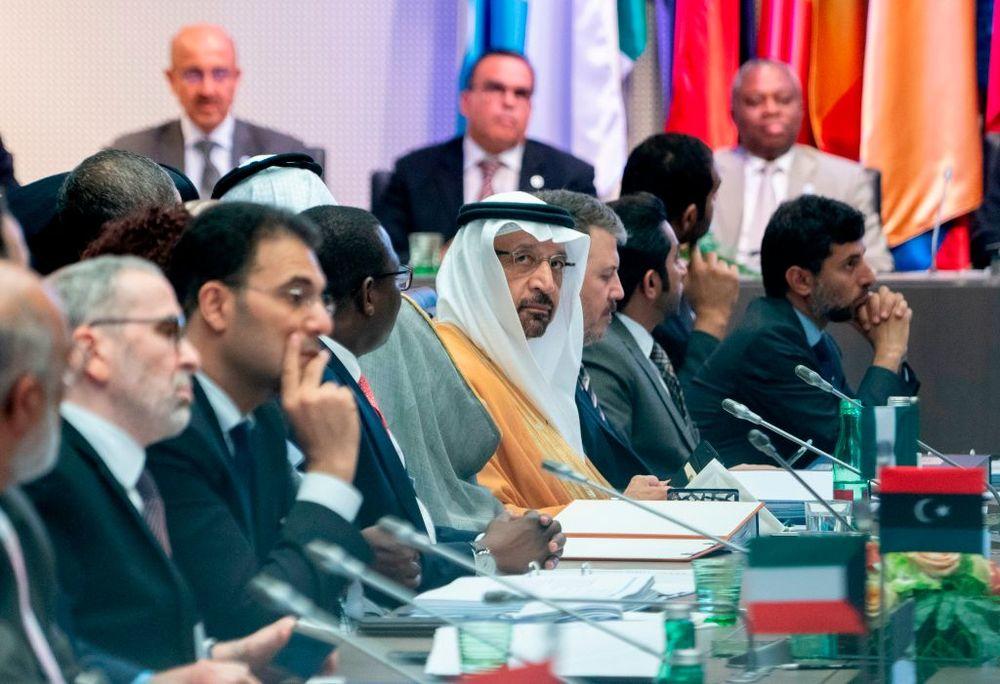Is The OPEC+ Alliance Coming To An End?
Tyler Durden
Mon, 08/10/2020 – 03:30
Authored by Haley Zaremba via OilPrice.com,
It’s been a wild and bumpy ride for OPEC+ this year. The consortium, consisting of the traditional members of the Organization of the Petroleum Exporting Countries plus oil and gas superpower Russia, was largely responsible for the huge collapse in oil prices toward the end of April. After a huge drop in oil demand corresponding with the devastating spread of the novel coronavirus around the world, an OPEC+ strategy meeting turned into a spat between Russia and Saudi Arabia which then turned into an all-out oil price war and massive global oil glut. The oil storage shortage created by this glut would go on to push the West Texas Intermediate crude benchmark into previously-unthinkable negative territory, closing out the day on April 30th at nearly $40 below zero per barrel.
OPEC+ has since reconciled and once again banded together to address the oil market crisis, making myriad pledges and severe production cuts to bolster crude oil prices. But many of the countries that made those pledges have fallen far short of their promises.
“OPEC reached a historic deal to cut output by 9.7 million barrels per day in April, but a number of countries fell significantly short in meeting their production targets,” reports Markets Insider.
But, just this week Iraq, OPEC’s second-biggest member just made a huge commitment to cut its oil production in the coming months. After a Thursday night conversation between Iraqi and Saudi leadership, Baghdad “made a commitment to cut oil production by 400,000 barrels per day in August and September,” a massive uptick from the nation’s relatively paltry July production cut of 11,000 barrels per day.
But while the oil market is now recovering and countries like Iraq are starting to fall in line, this may not indicate smooth sailing for the international oil consortium.
“Rebounding oil prices have the potential to show the cracks that already exist in the delicate cooperation between the powerful oil-producing nations,” the Wall Street Journal reported this week in an article entitled “How a Tenuous Saudi-Russia Oil Alliance Could Melt Down.”
The article recounts OPEC’s rough, tough year(s), remarking that “Saudi Arabia, the dominant force of OPEC, might as well have been herding cats in recent years trying to bring order to the unruly cartel.” At first, the addition of Russia to bring the “+” to OPEC+ was a godsend for the group and a boon to oil markets, but now Riyadh and Moscow’s extremely different ambitions could spell doom for the cartel.
In light of the fact that many OPEC+ members have been complying with production cuts and that these cuts seem to be working, in mid-July, the cartel actually agreed to let OPEC members’ overall production to increase by a considerable 1.6 million barrels a day.
“The latest adjustment was a reflection of a demand picture that seems to be improving,” reports the Wall Street Journal.
“Yet that very development could hobble cooperation between Saudi Arabia and Russia going forward.”
As history has taught us over and over, alliances more often than not require a common enemy–in this case a floundering oil market.
“Under $40 [a barrel], they were able to come together. The higher the price, the harder it will be to get Russia to go along with continued production cuts – especially once you get to $50 a barrel for Brent Crude,” Gary Ross, Chief Executive Officer of Black Gold Investors told the Wall Street Journal.
And now, there’s not enough to keep Saudi Arabia and Russia’s diverging visions from, well, diverging. The two nations at the helm of OPEC+ publicly claim vastly different break-even prices and the recent easing of austere production measures could be the harbinger of doom for the already delicately-balanced cartel. And a dramatic failure for OPEC and its consortium of precarious oil autocracies could spell serious geopolitical turmoil for the Middle East, and by extension, for all of us in this global village.
![]()
Zero Hedge’s mission is to widen the scope of financial, economic and political information available to the professional investing public, to skeptically examine and, where necessary, attack the flaccid institution that financial journalism has become, to liberate oppressed knowledge, to provide analysis uninhibited by political constraint and to facilitate information’s unending quest for freedom. Visit https://www.zerohedge.com

